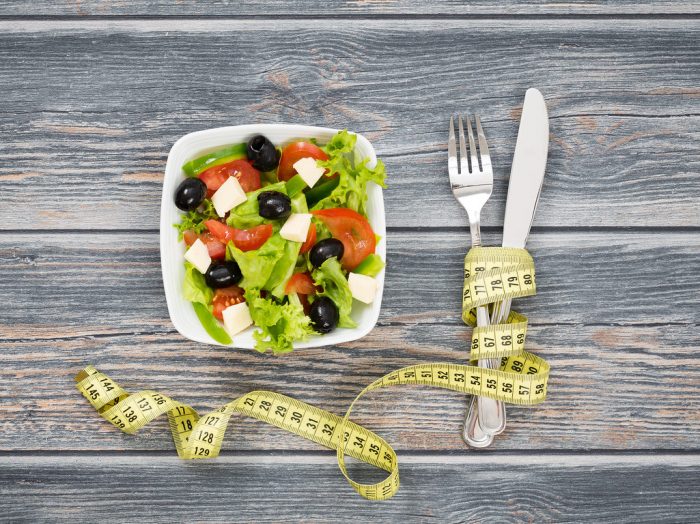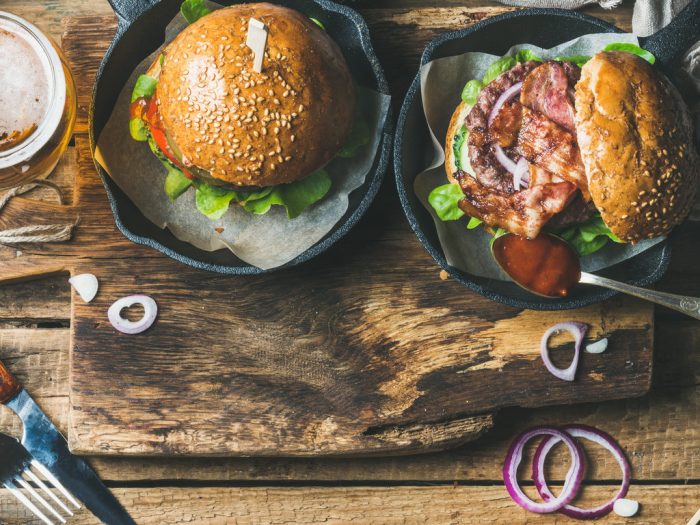Hunger. We all struggle to understand it so we can better manage our weight, while also making sure to feed our body with all the necessary nutrients in order to function properly. Yet hunger, accompanied by cravings, always seem to stand in the way of our slim silhouettes. Let’s shed some light on this matter!
In intuitive eating, dieticians talk a lot about types of hunger and how to respond to each of them, without jeopardizing our health or weight. But first, let’s understand a little bit better what hunger is.
The difference between hunger and appetite
By now, you already know that your energy levels depend on the foods you are eating throughout the day. The first who can tell us we ran out of energy is not the stomach, but the brain.
In a study from 2008, it was explained that: „The brain detects alterations in energy stores and triggers metabolic and behavioral responses designed to maintain energy balance. Energy homeostasis is controlled mainly by neuronal circuits in the hypothalamus and brainstem, whereas reward and motivation aspects of eating behavior are controlled by neurons in limbic regions and cerebral cortex.”
In short:
Appetite = the desire for food triggered by senses (seeing, smelling, or thinking about food).
Hunger = a normal sensation triggered by the brain when the stomach is empty.
In the hypothalamus, there are 2 main hunger hormones localized that we need to take into consideration:
- leptin: hormone made by fat cells that decreases appetite.
- ghrelin: hormone released in the stomach which signals hunger to the brain in order to increase appetite.
Now that we know how to distinguish between hunger and appetite, let’s dive deeper into the first one.
Types of hunger
1. Eye hunger
Did it happen to you to crave something right after seeing how good it looks? Yes, this is called “eye hunger”, the inexplicable sensation that you cannot resist food after you’ve just looked at it. You may see good looking dishes on TV, in an article, on YouTube, or at the restaurant and you want it instantly.
To control this type of hunger, it might be useful to divert your attention to other beautiful things that surround you. This trick will take your mind off the dish you just saw and crave.
2. Mind hunger
Thinking about food makes you hungry all of a sudden? It might be your mind playing tricks on you. As you already know, the mind makes decisions based on the information it receives, so when you are thinking, reading, or talking about food, it is common to experience a hunger sensation.
Tip: try to think about foods you don’t enjoy eating. If the hunger stops, then it’s very possible that it was all just a mind game.
3. Ear hunger
Hearing the sound of a chips bag opening, hearing someone nearby eating popcorn, these are common situations of ear hunger. Since you can’t stop hearing sounds, you might want to try and distract yourself with music or other activities, in order to quickly forget the food-related noises.
4. Nose hunger
The smell of fresh coffee in the morning, the smell of bagels and pretzels taken out of the oven, the smell of grilled meat – these are all situations that trigger the nose hunger. If you want to reduce the intake of food, start smelling the dish before you eat and also smell each bite of food before ingesting it. You’ll see you will feel fuller faster.
5. Stomach hunger
The growling stomach is the most obvious sign of hunger, you might think. But we all experience different sensations in the stomach, according to different hunger levels. Evaluate closely when your stomach is really empty, just empty, casually satisfied, pleasantly full, overfull, or outright stuffed. Keep in mind to eat and tune your eating according to the level of fullness. Stop eating when you experience a comfortable sensation in the stomach, not when you feel like you’re about to explode.
6. Mouth hunger
Sometimes your mouth craves something sweet, other times, it wants to indulge with something spicy or salty. The taste buds’ preferences change very quickly. But it’s important to know that mouth hunger is not real hunger, it’s only related to cravings. No one says you have to resist cravings, but it would be best to stop after the craving is gone. 2 or 3 bites can be enough to satiate the mouth hunger.
7. Heart hunger
Your mom’s pancakes, your grandma’s apple pie, the coffee recipe of your father, all these things you feel like eating, but not because you are actually hungry. Heart hunger has emotional roots, since you want to fulfill not only your stomach but also your soul.
Useful tip: mind your portions and don’t force yourself to eat everything on your plate, especially when you know you’ve had enough.
8. Cellular hunger
The distinction between what the body needs and what the mind wants is the key to control this type of hunger. When your body tells you what to eat and what not to eat, make sure to listen to it. It is very tempting to follow someone else’s advice (nutritionists, food plans, books), but keep in mind that bodies work differently, and if you listen closely to yours, it will tell you what it needs.
9. Stress hunger
There are two types of people in this world when it comes to eating habits induced by stress: they either starve or overeat. If you’re in the latter category, you may have been noticing that when you’re feeling stressed, you don’t care about what you’re eating, you only care about making the hunger sensation go.
Dealing with stress hunger is hard, but not impossible. Each time you are tempted to eat without thinking, it’s best to take into consideration future consequences for your body and overall health. After all, you don’t want to cause yourself more stress by eating carelessly.
10. Boredom induced hunger
Eating out of boredom is another habit plenty of us are struggling with. When you have nothing to do, it’s very tempting to visit the fridge or chew on something from the kitchen cabinets. To fight against this habit, it’s best to find different activities to fill your spare time with: play with your cat/dog, go for a walk, read a book or listen to music and dance.
11. Working / Watching TV induced hunger
It’s a very common situation: you watch TV or your favorite series on Netflix, and you instantly feel like nibbling on something. A bag of chips, seeds, a slice of cake, anything will do.
It also happens after you’ve been working long hours at the office: the sudden loss of energy and the will to refill your stomach in order to keep the work going.
Both situations may not have anything to do with the fact that you’re hungry. Before starting any of these 2 activities, ask yourself how hungry you really are.
12. Midnight hunger
Does it happen to wake up from sleep just to eat, because otherwise, you don’t feel satisfied? There might be other hidden causes for this bad habit: stress or hormonal imbalance. What can you do about it? Keep a healthy snack nearby. Choose to prioritize sleep over eating.
Identifying which type of hunger you are experiencing is a good thing to do because it gives you information about how you can satisfy it.





